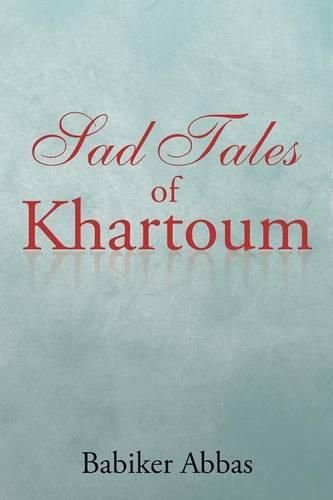Readings Newsletter
Become a Readings Member to make your shopping experience even easier.
Sign in or sign up for free!
You’re not far away from qualifying for FREE standard shipping within Australia
You’ve qualified for FREE standard shipping within Australia
The cart is loading…






This title is printed to order. This book may have been self-published. If so, we cannot guarantee the quality of the content. In the main most books will have gone through the editing process however some may not. We therefore suggest that you be aware of this before ordering this book. If in doubt check either the author or publisher’s details as we are unable to accept any returns unless they are faulty. Please contact us if you have any questions.
When Sudan gained independence after about sixty years of Egyptian-British rule, there were high aspirations that the country would be a leading African state, a model for others. A democratically elected government was put into office and was performing very well. Then a military coup occurred, designed and endorsed by two parties who were allied as a ruling majority, because they were sure that the opposition was about to regain Parliamentary confidence. Sudan lost political stability for good. A series of weak and fragile democracies were succeeded by a series of military coups. Lives were lost, property confiscated and vandalized, freedoms alienated, and a once peaceful and thriving nation gradually became miserable. "Sad Tales of Khartoum" is about some of these miserable encounters. Many citizens were hanged because they had independent ideas; many met similar fate because they owned dollars, lawfully, sometimes as a family legacy; while others were killed, their homes burned, without anybody telling them why. The book is a record of the efforts and sacrifices forwarded by one African nation in the struggle for democracy and honest rule. It also records the failure of the elite in modern Africa to come forward with an original, realistic scheme to address Africa's chronic ailments. The tragic events depicted in the book demonstrate the disparity between the aspirations of the common people and the intrigues practiced by the elite in their bequest for power.
$9.00 standard shipping within Australia
FREE standard shipping within Australia for orders over $100.00
Express & International shipping calculated at checkout
This title is printed to order. This book may have been self-published. If so, we cannot guarantee the quality of the content. In the main most books will have gone through the editing process however some may not. We therefore suggest that you be aware of this before ordering this book. If in doubt check either the author or publisher’s details as we are unable to accept any returns unless they are faulty. Please contact us if you have any questions.
When Sudan gained independence after about sixty years of Egyptian-British rule, there were high aspirations that the country would be a leading African state, a model for others. A democratically elected government was put into office and was performing very well. Then a military coup occurred, designed and endorsed by two parties who were allied as a ruling majority, because they were sure that the opposition was about to regain Parliamentary confidence. Sudan lost political stability for good. A series of weak and fragile democracies were succeeded by a series of military coups. Lives were lost, property confiscated and vandalized, freedoms alienated, and a once peaceful and thriving nation gradually became miserable. "Sad Tales of Khartoum" is about some of these miserable encounters. Many citizens were hanged because they had independent ideas; many met similar fate because they owned dollars, lawfully, sometimes as a family legacy; while others were killed, their homes burned, without anybody telling them why. The book is a record of the efforts and sacrifices forwarded by one African nation in the struggle for democracy and honest rule. It also records the failure of the elite in modern Africa to come forward with an original, realistic scheme to address Africa's chronic ailments. The tragic events depicted in the book demonstrate the disparity between the aspirations of the common people and the intrigues practiced by the elite in their bequest for power.